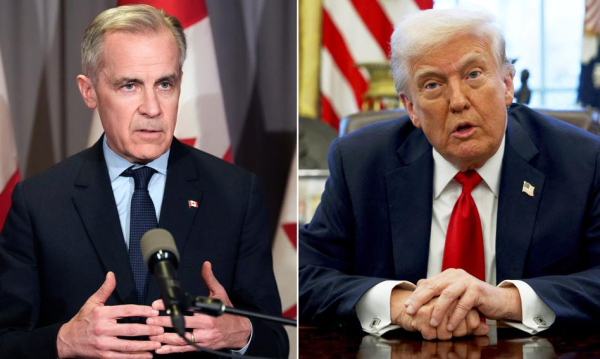Canada is imposing a 25 percent tariff on U.S.-made cars imported that do not meet the requirements of CUSMA, the Canada-U.S.-Mexico free trade agreement, Canadian Prime Minister Mark Carney said on Thursday.

In response to the coming into force of U.S. tariffs on cars imported into the U.S., Canada will impose tariffs on U.S. cars, but not on parts, because it recognizes the benefits of an “integrated production system.” However, tariffs will be imposed on non-Canadian parts of U.S. cars if those parts do not meet CUSMA requirements.
Tariffs will not be imposed on cars imported into Canada from Mexico, Carney explained during a news conference.
He added that the government is preparing a plan to support automakers in Canada, provided that production continues. Carney said all of the money from Canadian tariffs will go to help companies and workers in the auto sector. The government estimates that this will amount to C$8 billion per year.
Carney noted that while Canada was not subject to the 10% “basic tariffs” announced Wednesday by the U.S., there are three other tariffs that are in effect or will be in effect, such as steel and aluminum. He said the latter, for example, violates CUSMA, which requires two months of consultations before tariffs are imposed. He added that the U.S. is considering tariffs on “strategic sectors” such as pharmaceuticals, lumber, semiconductors and agriculture. He said talks on those issues will continue in the coming weeks.
In this context, Carney emphasized that Canada will have to conduct a deep renegotiation of agreements with the United States, both economic and security. He recalled that 80 cents of every dollar spent on equipping the Canadian army goes to American manufacturers, and “in the current situation it does not make sense.” He added that a review of the rationale for buying F-35 aircraft from the United States is underway. At the same time, Carney assured that the United States is “of course” an ally of Canada, despite the tariffs. “Our old relationship with the United States based on constant deepening integration is over. The 80 years when the United States led the world economy (…) is over,” he said.
Carney said Canada could play a leadership role in building “a coalition of like-minded countries, and if the U.S. no longer wants to be the leader, Canada will be the leader.” He pointed to his talks with the European Union on strengthening economic and defense ties.
The Prime Minister added that the world economy “is fundamentally different today than it was yesterday,” and the American decisions on tariffs, although not directly aimed at Canada, “will derail the world economy and negatively impact economic development.” He emphasized that the effects will be felt most by Americans, both by the slowdown in the economy and inflation. He added that, just as in 2008, when he was the governor of the Bank of Canada, now “we can reduce the negative impact on Canada.”
Asked if he had a conversation with Donald Trump scheduled, Carney said that such a conversation could take place if necessary. He recalled that in his first conversation with the American president last Friday, he announced that Canada would take retaliatory action.
According to the Canadian prime minister, there is currently no reason to believe that the US administration will change its decisions on economic policy, as long as the consequences are not felt by American families. “But I don't want to give false hope,” he concluded.
From Toronto Anna Lach(PAP)
lach/ kar/





